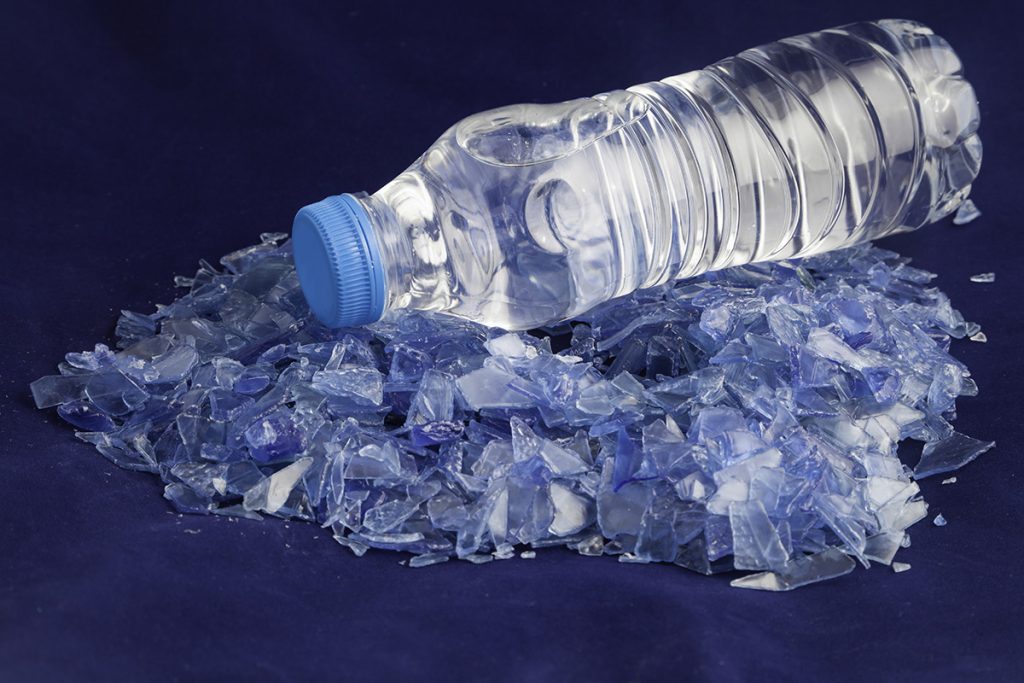
Europe’s PET imports doubled from 2021 to 2022. | Aykut Erdogdu/Shutterstock
Could minimum recycled content mandates for PET bottles simply drive an increase in RPET imports? A recycling industry group in Europe is concerned that’s happening there.
Plastics Recyclers Europe (PRE) on June 6 issued a statement noting that European virgin and recycled PET imports had doubled from 2021 to 2022, reaching 1.9 million metric tons. According to the release, the three largest sources of PET were India, China and Turkey, followed by Indonesia, Egypt and Vietnam.
Imports in 2022 made up 30% of total demand for PET in Europe, up from 23% in 2020.
“Given the strong divergences in energy, labor and environmental costs in the EU compared to the rest of the world, this important market shift puts the European industry under a lot of pressure,” the release stated.
PRE noted that trading codes for the EU don’t differentiate between virgin and recycled PET, so they don’t know exactly how much of the increase was post-consumer material versus prime. But the group pointed to minimum recycled content mandates as a likely driver for the increased imports.
“It needs to be ensured that recycled PET imported to the EU at significantly lower prices is compliant with the stringent EU food contact regulation.” -Casper van den Dungen, PRE’s vice president.
The EU is mandating PET bottles contain 25% RPET by 2025, a policy that is driving up prices on the continent, PRE said.
In response to the 2022 imports, industry group PET Europe filed a complaint with the EU, kicking off anti-dumping proceedings aimed at China.
In addition to concerns about being put at a competitive disadvantage, PRE said the lower-cost imported RPET needs to meet EU food-contact regulations, which require food-grade RPET to have come from separate collection systems for strictly food-grade containers.
“It needs to be ensured that recycled PET imported to the EU at significantly lower prices is compliant with the stringent EU food contact regulation, and therefore does not put at disadvantage the efforts made for creating a robust rPET industry in Europe,” Casper van den Dungen, PRE’s vice president, stated in the release. “This will additionally require full verification of the traceability of imported polymers by end users to avoid using self-declarations as the means of reporting recycled materials participating to the EU targets.”
In the U.S., multiple states are implementing recycled content requirements for PET bottles, including California, Washington state and New Jersey. California’s requirements went into effect in 2022, but state authorities aren’t planning to consider penalties for noncompliance until reports are in for 2023.
Data from RecyclingMarkets.net shows that, on a national basis, scrap PET prices skyrocketed in 2022, reaching nearly 40 cents per pound in May 2022, but they have come down substantially since then, resting at around 14 cents.
The U.S. imported 339 million pounds of PET bottle scrap in 2022, down 3% from the prior year, according to U.S. Census Bureau statistics. The biggest supplier was Canada at 108 million pounds, followed by Mexico at 42 million pounds and Ecuador at 25 million pounds.
More stories about Europe
- Financing, uncertainty feed EU recycler bankruptcies
- PCR mandates, global policy needed to improve rates
- European plastics recycling sector faces slew of challenges


